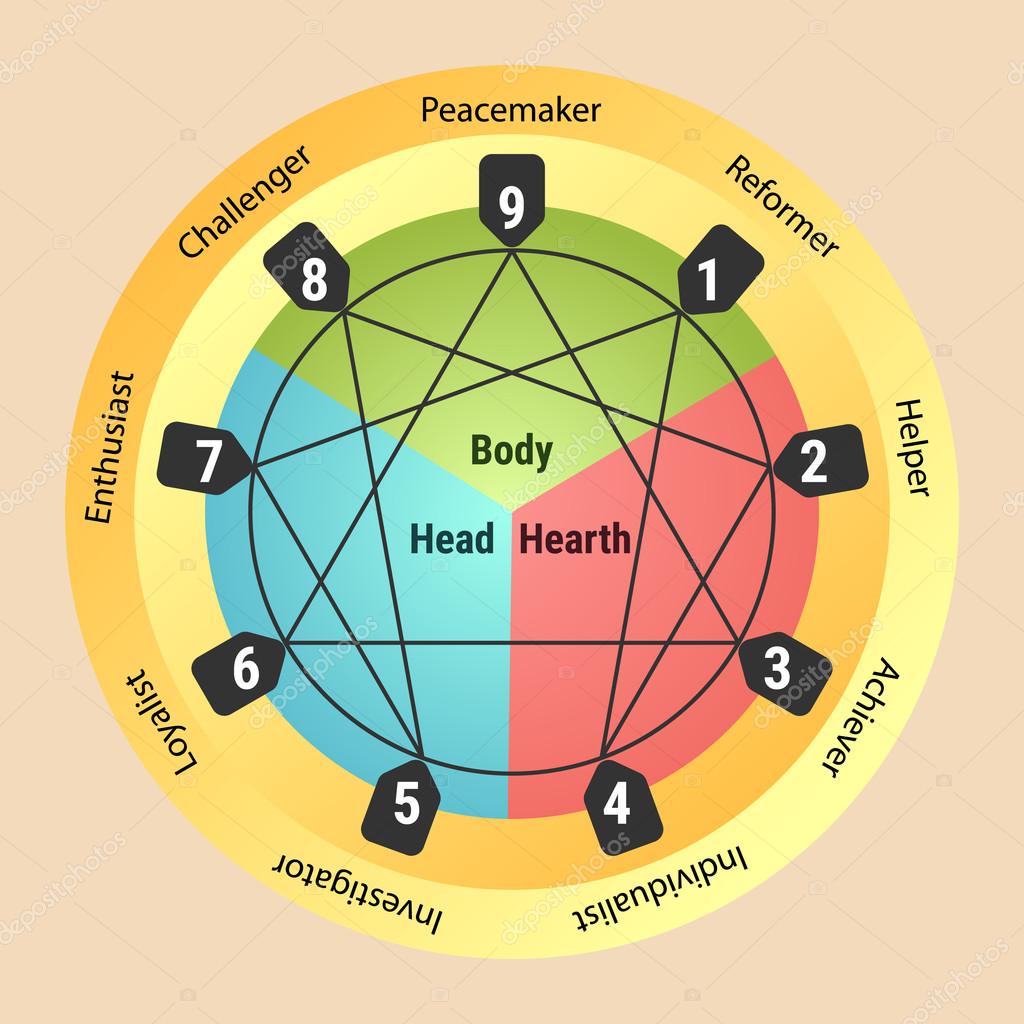Why are people so fascinated by astrology and other personality tests? What is the appeal and what is the benefit?
I think that for many introspective people, there is a desire to understand why we’re the way we are. To what can we attribute our personality and behavior? How can we better understand ourselves and those around us? Things like star signs or the Myers-Briggs Type Indicator have been around for a long time and are extremely popular, for various reasons, but essentially for the principle that they help us to understand ourselves.
Personally, I am not big on astrology. I also know that there is no real scientific validity to Myers-Briggs. But I will admit, I believe in the Enneagram.
I favor it because it does not just stereotype you and stop. Its complexities delve into the “why” of your personality– getting to the root of how and for what reasons you function when you are healthy, unhealthy and in between.
There are nine basic personality types. You are born with your dominant personality type, according to Enneagram theory. Additionally, one’s childhood environment heavily influences their development, and thus their personality. Our resulting personality reflects all childhood factors – genetics included – that influence our development. The main types are as follows:
1. The Reformer
2. The Helper
3. The Achiever
4. The Individualist
5. Investigator
6. The Loyalist
7. The Enthusiast
8. The Challenger
9. The Peacemaker
However, within these main types are many subcategories and variances. You are not starkly a Type 5 or a Type 9. All of the personality types are interconnected. The complications come in the forms of “centers” and “wings.” There are three main centers: the instinctive center, the thinking center and the feeling center. Each center consists of three personality types that share the same assets and liabilities of that particular center. For example, Type 4 is strongly dominated by feelings and resides in that center. Every person also has a “wing”, whichever personality directly above or below yours that you identify with the most.
Within each type, there are levels of development. Every Type 4 does not function in the same way. The Enneagram Institute says, “There is an internal structure within each personality type. That structure is the continuum of behaviors, attitudes, defenses and motivations formed by the nine Levels of Development which make up the personality type itself.” It addresses each type’s vices, their usual coping mechanisms and much more.
I am a Type 4 with a 5 wing, otherwise known as “The Free Spirit” or “The Bohemian.” As a Type 4, my very basic description is: “The Sensitive, Introspective Type.” Fours are self-aware, sensitive and reserved. This manifests as being emotionally honest and creative but also moody and self-conscious. When I am functioning at my best, I am inspired and creative. The basic fear of my type is being flawed, lacking identity or personal significance. On the flip side, my basic desire is to find myself and my significance– to be unique.
I have taken the test several times over the years and always end up with the same result. I identify with everything I have read about my type, to the point where at times, it hits too close to home .
I love that the Enneagram allows me to ask questions about myself– exploring the good and bad– helping myself move toward where I want to be.
However, I am not saying that I live and breathe Enneagram. I do not base my entire being around it and hold its every assertion as absolute truth. I think this is a pitfall of many of these types of things, overly applying a type to your life and attributing or blaming everything to it. I simply resonate with the Enneagram and find it usually very helpful.
I also love knowing the types of my family and friends so that I can better understand and relate to them. It is validating to know there may be a reason I am acting the way I am, and it is valuable to have the insight as to how I can best adapt to help myself become a healthy 4.
- All About the Enneagram - March 25, 2021
- The Toxic Relationship Between Us and Social Media - November 12, 2020
- The Reality of Pandemic Relationships - October 15, 2020

